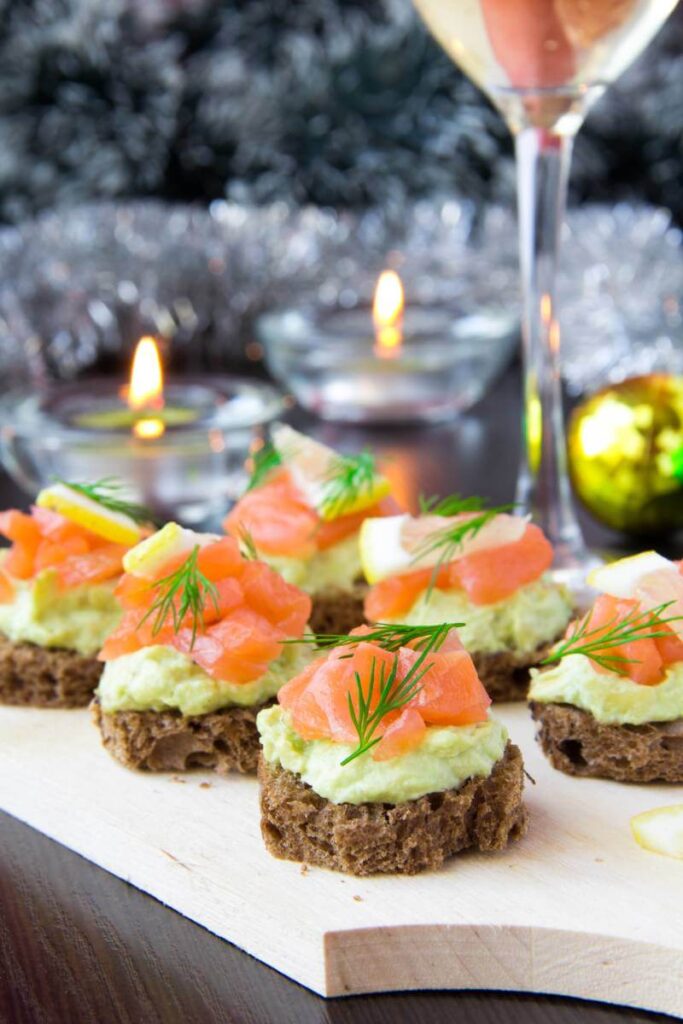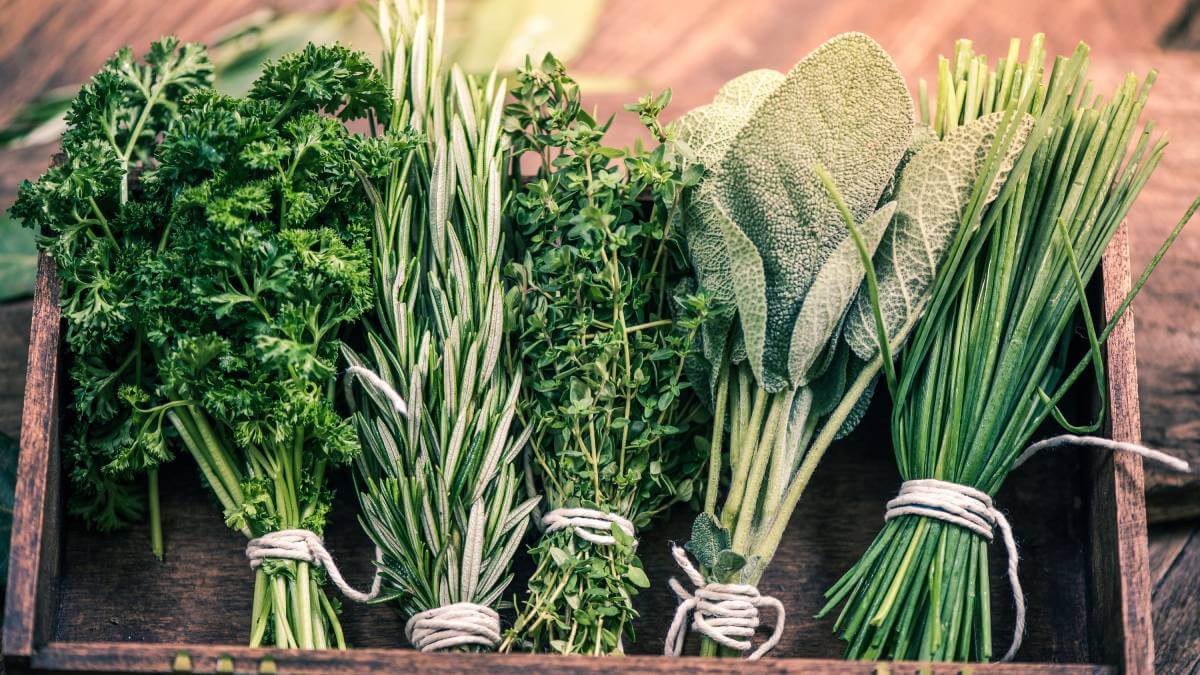Herbs are such a huge part of the festive platter, from the richness of sage in stuffing, to rosemary with delicious roast lamb.
So, why don’t you grow herbs in your garden to fill your Christmas plate with flavour? It’s too late this year to start from scratch, but you can steal a march now by planning your festive feasts with herbs from your own garden in 2023.
“Rosemary, parsley, thyme, sage and bay are all great additions to Christmas fare,” says RHS chief horticulturist Guy Barter.

What conditions will they need?
“Almost all herbs, apart from mint and chives, require good direct sunlight. Imagine a place that gets more than six hours’ sunlight a day in December; that’s the best place to put them. Use a good multipurpose compost, and it’s a good idea to repot them every spring because they don’t like waterlogging.”
These are his recommendations for easy-to-grow herbs which add flavour to festive dishes.
1. Sage

This wonderful evergreen is a must in stuffing, says Mr Barter.
Sage is a Mediterranean herb that needs a full sun position and doesn’t like summer humidity or wet feet. Good drainage and air circulation are essential to keep plants healthy. Sage is often grown in pots, especial in humid coastal regions, where it performs well due to the extra drainage and air flow.
Usually people just buy a sage plant from the nursery to get started but it can also be grown from seed. Sow seeds direct in spring (after frosts) and summer and they’ll germinate in three to four weeks.
Strike cuttings from established sage plants in spring and summer and they’ll be ready to pick leaves from in a month.
View this post on Instagram
Older sage leaves are shed in summer and the plants can get leggy, so cut them back a little in spring or in late summer to keep them bushy. Take cuttings as they are not a long-lived plant, Mr Barter advises.
Read: How to dry and store fresh garden herbs
2. Parsley
This underrated herb is brilliant added to a softened butter, lemon juice and crushed garlic mix to line the turkey between the skin and breast during cooking.
View this post on Instagram
“Parsley is surprisingly hardy, so if you buy plants they will grow perfectly well outdoors or on a windowsill.” says Mr Barter.
Like most herbs, parsley likes to be grown in a mostly sunny spot, but parsley is versatile in that it can take some shade through the day. In fact, in very hot parts of Australia, some shade during the middle of the day, or the afternoon, would be preferable. Parsley will need to be replaced each year.
“Sow parsley in a cell tray and then pot on the clumps of plants as soon as the roots bind the soil. Raise the plants in the cell tray in the greenhouse or cover them in a cloche or fleece to keep the carrot fly off. Parsley likes moist, but not waterlogged, soil,” Mr Barter says.
3. Bay

“This is a terrific garden evergreen, widely sold as small plants which will go on year after year. It’s always worth planting a bay tree if you have a sunny spot, or as an ornamental potted plant.”
The bittersweet, spicy flavour of bay leaves can be used to enhance soups, stocks, gravy or casserole, Mr Barter recommends. “Like most herbs, the flavour is more intense in late summer, but the leaves have a pretty strong flavour in any season.”
Read: Best antiviral herbs to grow
4. Rosemary (now identified as salvia)
View this post on Instagram
This herb is synonymous with roast lamb, its aromatic sprigs adding flavour to your traditional roast, but it also gives wow factor to turkey gravy if you let a few sprigs infuse while the gravy’s cooking, and then remove them before serving.
“If you have a dry, sunny soil, rosemary is very easy and reliable,” says Mr Barter. “It can take neglect and will withstand pruning, although if you have clay soil it can be short lived. It’s easy to propagate from cuttings taken in late summer. Treat it exactly like lavender. All these sun-loving herbs from Mediterranean climates are like that.”
5. Coriander
View this post on Instagram
Coriander is a brilliant herb to add to Boxing Day salads, especially if you’re going for Asian, chilli-orientated concoctions with your cold meats, or to sprinkle over a spicy turkey curry.
“Seeds of these herbs are very cheap. Sow them in from early summer every three to four weeks for a constant supply, and pick the leaves when they are young.”
Read: What could be hiding in your dried herbs and spices?
6. Dill

Dill, which provides the perfect accompaniment to salmon, hot or cold, is a large annual or biennial with ferny foliage. Sow seeds between mid-spring and summer and you’ll need to stake taller varieties such as ‘Herkules’ which grows to 1.2m, to stop them topping over.
Don’t allow compost to dry out and cut leaves as required during spring and summer and then freeze or dry them for Christmas use.
What herbs do you like do use during the holiday season? Share your favourites in the comments section below.
– With PA

